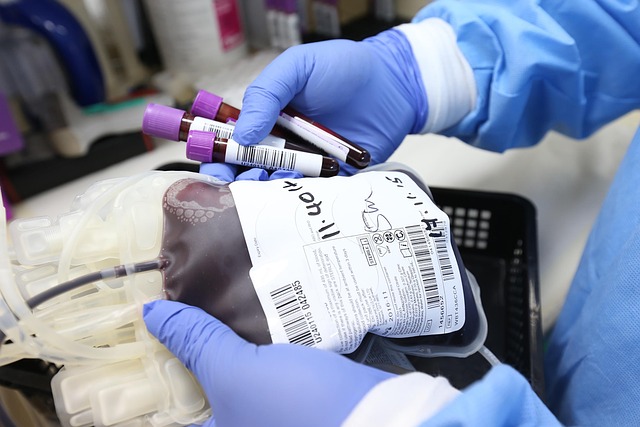The Link Between Radiation and Prostate Cancer: Insights from Studies
Delve into the latest studies exploring the connection between radiation and prostate cancer in the US. Discover valuable insights that shed light on this crucial health topic and its implications. Gain a deeper understanding of the research findings and their potential impact on treatment and prevention strategies.

What is the current understanding of radiation and prostate cancer?
The link between radiation exposure and cancer development has long been established in various forms of the disease. However, the specific relationship between radiation and prostate cancer has been a subject of ongoing research. Current understanding suggests that while high doses of radiation can potentially increase the risk of developing prostate cancer, the connection is not as straightforward as with some other cancer types.
Studies have shown that occupational exposure to ionizing radiation, such as that experienced by nuclear power plant workers or radiologists, may be associated with an increased risk of prostate cancer. However, the evidence is not conclusive, and more research is needed to fully understand the mechanisms at play.
How do recent studies contribute to our knowledge?
Recent studies have provided valuable insights into the relationship between radiation and prostate cancer. A large-scale study published in the Journal of the National Cancer Institute examined data from over 100,000 men exposed to various levels of radiation in their occupations. The findings suggested a modest increase in prostate cancer risk among those with higher cumulative radiation exposure.
Another study, conducted by researchers at the University of California, San Francisco, focused on low-dose radiation exposure from medical imaging procedures. The results indicated that while there was no significant increase in overall prostate cancer risk, there might be a slightly elevated risk for aggressive forms of the disease among men who underwent frequent radiological examinations.
What role does radiation play in prostate cancer treatment?
Interestingly, while radiation exposure may pose a potential risk factor for prostate cancer development, radiation therapy remains a crucial treatment option for many prostate cancer patients. External beam radiation therapy (EBRT) and brachytherapy are two common radiation-based treatments that have shown effectiveness in targeting and destroying cancer cells within the prostate gland.
Recent advancements in radiation therapy techniques, such as intensity-modulated radiation therapy (IMRT) and proton beam therapy, have allowed for more precise targeting of cancer cells while minimizing damage to surrounding healthy tissue. These developments have improved treatment outcomes and reduced side effects for many patients.
Are there any protective measures against radiation-induced prostate cancer?
While it’s challenging to completely eliminate radiation exposure in our modern world, there are several measures that may help reduce the risk of radiation-induced prostate cancer:
-
Limiting unnecessary medical imaging procedures that involve radiation exposure.
-
Using proper protective equipment in occupations with potential radiation exposure.
-
Maintaining a healthy lifestyle, including a balanced diet rich in antioxidants and regular exercise.
-
Regular prostate cancer screenings, especially for those with higher risk factors.
It’s important to note that these measures are general recommendations and may not guarantee prevention of prostate cancer. Consulting with a healthcare professional for personalized advice is always recommended.
What unique insights have emerged from US-based studies on this topic?
US-based research has contributed significantly to our understanding of the radiation-prostate cancer link. A notable study conducted by the National Cancer Institute examined radiation exposure among US radiologic technologists over several decades. The findings suggested a potential dose-response relationship between cumulative radiation exposure and prostate cancer risk, particularly for those with long-term occupational exposure.
Another interesting insight comes from a study at the University of Texas MD Anderson Cancer Center, which explored the impact of space radiation on prostate cancer risk. This research, relevant to astronauts and future space exploration, indicated that exposure to cosmic radiation might increase the risk of aggressive prostate tumors, highlighting the need for protective measures in space travel.
How might these findings impact future prostate cancer prevention and treatment strategies?
The insights gained from recent studies on radiation and prostate cancer have several potential implications for future prevention and treatment strategies:
-
Enhanced occupational safety measures: Stricter radiation protection protocols may be implemented in high-risk occupations.
-
Personalized screening recommendations: Men with higher radiation exposure histories might benefit from more frequent or earlier prostate cancer screenings.
-
Improved radiation therapy techniques: Ongoing research may lead to even more precise and effective radiation treatment methods for prostate cancer.
-
Development of radioprotective agents: Studies are underway to explore substances that could protect healthy cells from radiation damage during cancer treatment.
As research in this field continues to evolve, it’s likely that our approach to prostate cancer prevention, screening, and treatment will become increasingly sophisticated and personalized.
In conclusion, while the link between radiation and prostate cancer is complex, recent studies have provided valuable insights into this relationship. From potential risk factors to innovative treatment approaches, our understanding of how radiation interacts with prostate cancer continues to grow. As research progresses, we can anticipate further advancements in both prevention strategies and treatment options, ultimately leading to improved outcomes for prostate cancer patients.
This article is for informational purposes only and should not be considered medical advice. Please consult a qualified healthcare professional for personalized guidance and treatment.




